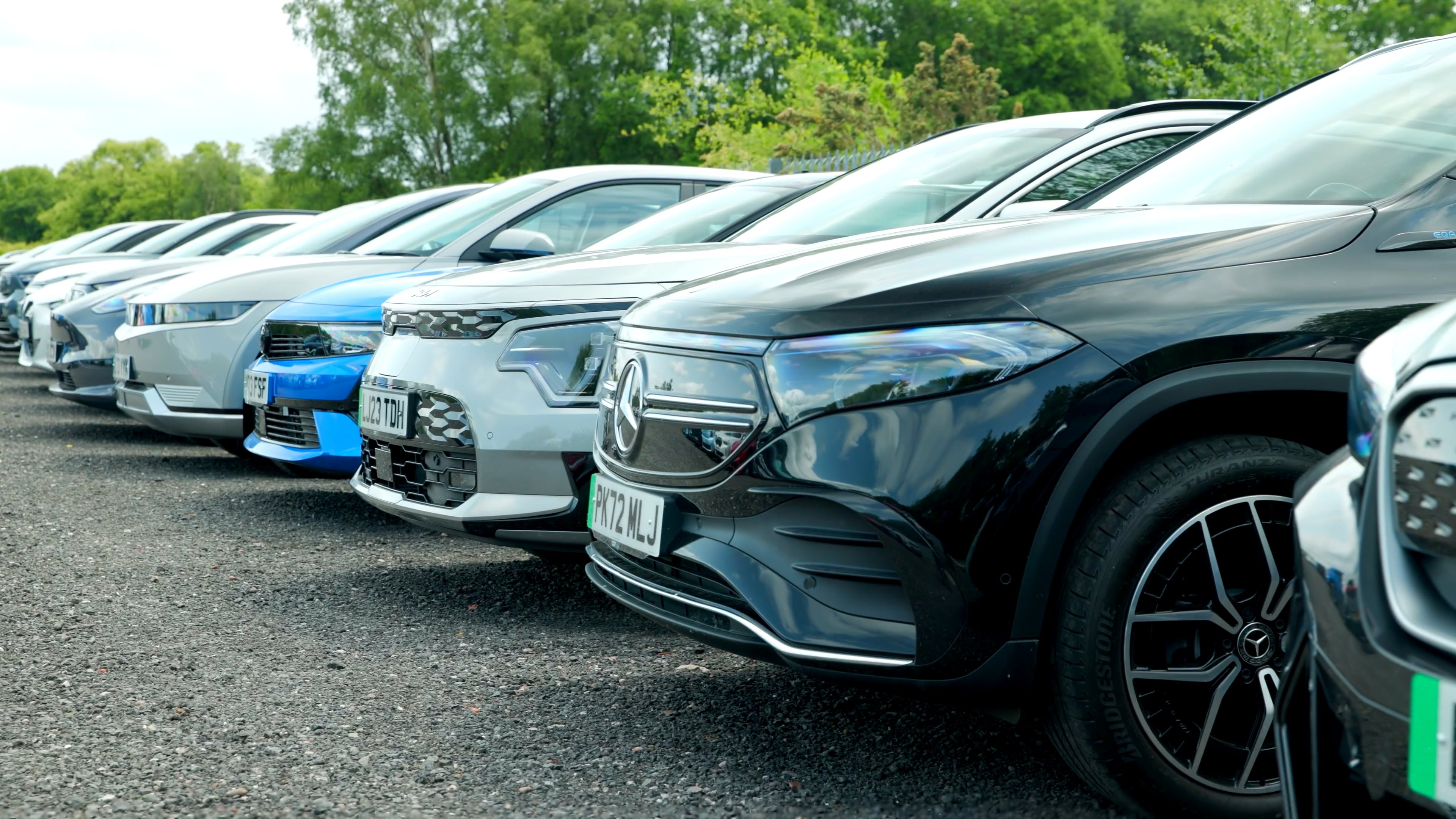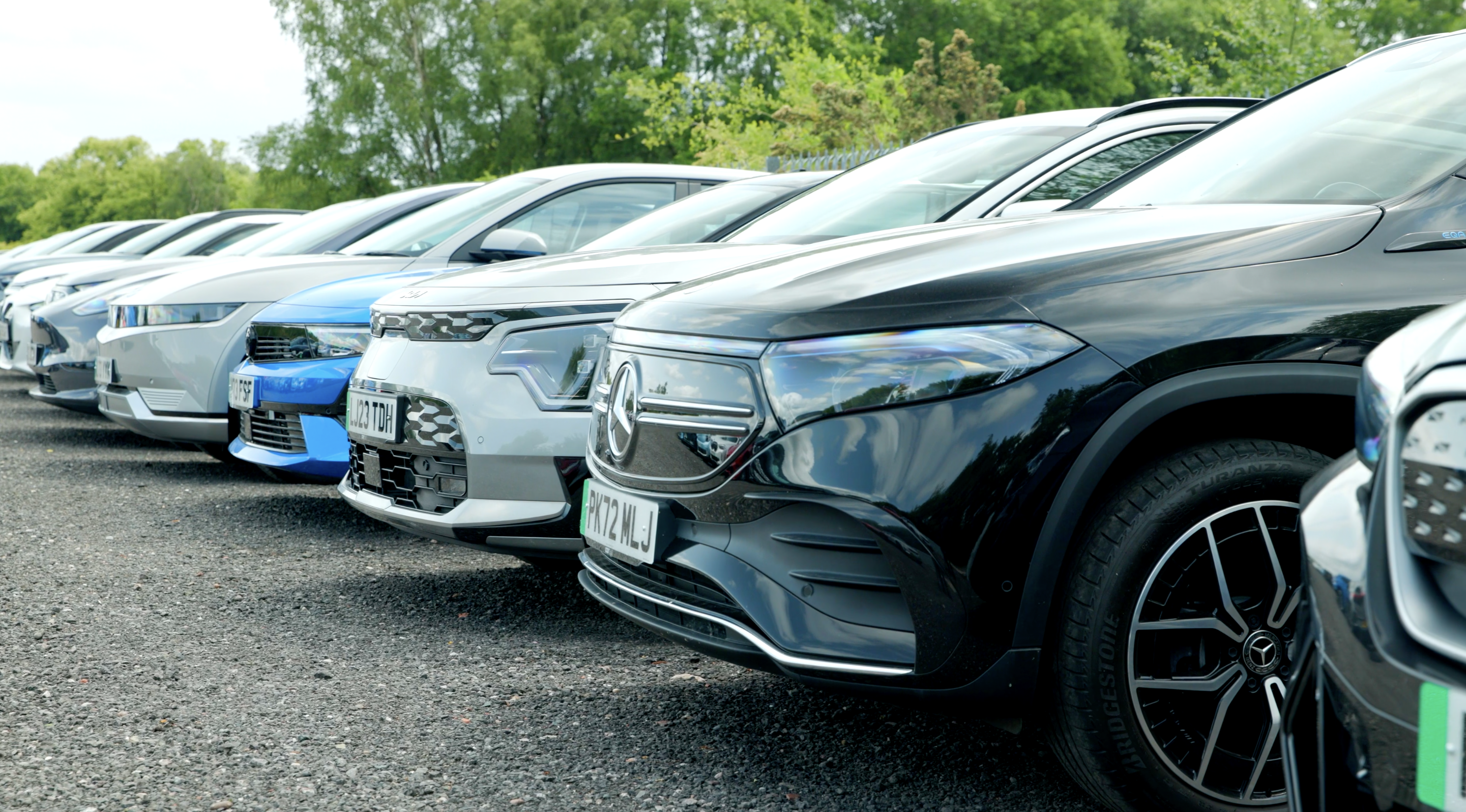Your guide to buying a used EV
Learn the 10 essentials: from range and battery health
to running costs and ownership tips.
1. How to choose the right EV for your lifestyle
Your ideal EV depends on how and where you drive:
Short trips or city life? Smaller EVs like the Renault Zoe or Honda e are perfect.
Long commutes? Prioritise higher range models like the Tesla Model 3 Long Range or Hyundai IONIQ 5.
Family needs? Look at EV SUVs with more boot space like the Kia EV6 or Skoda Enyaq.
Charging at home or on the go? This impacts cost and convenience.
Must-haves: Heated seats, parking sensors, infotainment systems? Choose what makes your drive easier.
💡 Make a list of your daily driving needs before browsing. It helps narrow down the right EV faster.

2. What to consider when comparing used models
Go beyond looks and price:
Real-world range: Don’t rely only on WLTP figures. For example, a VW ID.3 Pro claims 265 miles WLTP, but averages closer to 200 in winter. We recommend using ev-database.org for most accurate figures.
Charging speed: Can it handle rapid charging (100kW+)?
Plug compatibility: Ensure it supports CCS (most UK rapid chargers use this).
Practicality: Boot space, legroom, storage for everyday life.
Tech & features: Regenerative braking, adaptive cruise control, wireless CarPlay, etc.
Battery health: Ask for a certified report – most car360 cars include this.
💡 Comparing models side by side, including their real-world specs, helps avoid surprises later on.

3. Cost and savings
EVs save money over time, and the gap with petrol cars is closing fast:
Used EVs are now often cheaper than petrol – 3–5 year old EVs average £18,266 vs £18,731 for petrol.
Home charging can cost as little as 7p per mile, vs 14–20p per mile for petrol.
Lower servicing costs (fewer moving parts mean fewer breakdowns).
Road tax (VED) will apply to EVs from April 2025, but it’s still lower than petrol for most cars
Exempt from congestion/ULEZ charges until 2025, after which charges may apply
💡 Over five years, typical EV owners can save over £5,000 in fuel and maintenance – and with falling used prices, the initial cost gap is shrinking or gone.
ℹ Auto Trader Retail Price Index (May 2025), Zapmap, RAC, GOV.UK, Transport for London.

4. Environmental benefits of driving electric
The evidence is clear: switching to an EV supports a more sustainable future:
Zero tailpipe emissions
Lower lifetime CO₂ footprint, especially when charged with renewable energy
Batteries can be repurposed or recycled
EVs are quieter and reduce local noise pollution
Helps reduce reliance on fossil fuels
💡 Even factoring in battery production, EVs are still cleaner than petrol cars across their full lifespan.

5. EV myths busted Let’s set the record straight:
Let’s set the record straight:
❌ EVs don’t go far → Most cover 150–250 miles; Tesla Model 3 can go up to 350
❌ They take ages to charge → Rapid chargers add 80% in 30 mins
❌ Batteries degrade fast → Many are still at 85%+ after 8 years
❌ Expensive to maintain → No engine = fewer parts to go wrong
❌ Bad for the environment → Still cleaner than petrol cars across their lifespan
💡 Don’t let common myths hold you back. The tech has moved on, and so has the reliability.

6. EV battery range explained
Battery range means how far your car can go on a full charge. It varies depending on several factors:
Driving style: Fast acceleration and high speeds drain energy quickly
Temperature: Cold weather can reduce range by 20–40%
Road type: Motorway use is less efficient than stop-start city traffic
In-car features: Heating, AC and screens all use power
💡 You may have heard of ‘range anxiety’ - the fear of running out of charge. But in reality, the average UK driver covers under 30 miles per day, so even smaller-range EVs are more than capable for daily use.

7. Why battery health matters
The battery is the most valuable part of any electric vehicle. Its condition plays a key role in how far you can drive, how the car performs, and its long-term value.
Over time, all batteries degrade, so it’s worth checking how much usable life remains before buying. A battery health report gives insight into past usage and current performance, helping you make an informed choice.
💡 Most EVs on the market maintain good battery health for 8–10 years or more with proper care, but it’s always good to have a certificate that validates this. Car360 provides battery health check reports in most of our car. Learn more.

8. Charging your EV
Charging is simpler than you might think:
Home charging: Install a 7kW wall box for overnight charging. You can also use a standard 3-pin plug, but it’s slower.
Public charging: Use apps like Electroverse or Zapmap to locate public stations. Rapid and ultra-rapid chargers are widely available across the UK.
Connector types: Most modern EVs use Type 2 (AC charging) and CCS (rapid DC charging).
Speed: 50kW chargers add ~100 miles in 30 mins; 150kW units are even faster.
💡 There are now over 60,000 public charging connectors in the UK, and numbers are growing weekly. If you plan to charge often on the road, consider a subscription – it’s usually cheaper than pay-as-you-go.

9. How to make the most of your EV
Precondition your cabin while plugged in to stay comfy without using up battery range.
Use regenerative braking to boost range.
Don’t always charge to 100% or run to empty to protect your battery’s long-term health.
Keep tyre pressures topped up to improve range, safety, and reduce tyre wear.
Accept updates. They often improve efficiency and features .
💡 Regular maintenance isn’t just simpler. It can also help your battery last longer.

10. Why use car360 for your next EV?
When it comes to electric cars, we know what matters. We're EV experts, and we're here to make the switch easier for you:
✔ Every car is handpicked for quality
✔ Most include a third-party battery health report
✔ Transparent pricing, no admin fees
✔ 7-day money-back guarantee if you change your mind
✔ Competitive finance options available for all credit profiles
✔ Extended warranties available for added peace of mind
✔ Friendly, knowledgeable EV specialists to help you choose the right car

Ready to make the switch?
Don't just take our word for it!



